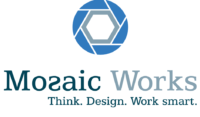 I T.A.K.E. Unconference 2014 kicked off with the open Intro. The speakers briefly introduced their sessions in front of almost 200 participants.
I T.A.K.E. Unconference 2014 kicked off with the open Intro. The speakers briefly introduced their sessions in front of almost 200 participants.
All the participants attended Michael Feathers‘ keynote who talked about the influence of organization on code structure and evolution.
His experience shows that the composition of teams and the structure of the organization around them often has a stronger influence on the quality of the code than the people working on it.
Time passed very fast and the five parallel tracks started. The participants joined the preferred sessions depending on their interest:
True Software Stories
- Hexagonal Architecture – Ports and Adapters
- Applied Craftsmanship in a Real Project
- Logic and Style in Modern Web Apps
- Hands on Continuous Delivery
Architecture and Design Practices
- Crafted Design
- S.O.L.I.D. Principles
- CQRS (Command Query Responsibility Segregation) in Baby Steps
- Enterprise Agile Architect Role
- Open Data Wizardry 101
- The Back Control over Your Test Suite
Technical Leadership
- Leading Tech Teams
- Scaling Agility: The Technical Angle
Kata Lounge track allowed those participants interested in coding to practise anytime they wanted, all day long.
Day 1 speakers: Johan Martinsson, Rémy Sanlaville, Sandro Mancuso, Martin Naumann, Flavius Ștef, Claudia Roșu, Alex Bolboacă, Bogdan Gradinariu, Adi Bolboacă, Sebastian Benz, Ioan Eugen Stan and Erik Talboom. They shared their knowledge and experience not just by simple presentations but through practical exercises, code and facilitation.
 After a a delicious lunch, the program continued with the Open Space sessions. The participants together with the speakers built the agenda: 15 sessions during 3 time slots, split into 5 corners for interactive discussions on the proposed topics. Some of the participants took the opportunity for a follow-up discussion to the talks or workshops, such as “Enterprise Agile Architect Role” session with Adi Bolboacă.
After a a delicious lunch, the program continued with the Open Space sessions. The participants together with the speakers built the agenda: 15 sessions during 3 time slots, split into 5 corners for interactive discussions on the proposed topics. Some of the participants took the opportunity for a follow-up discussion to the talks or workshops, such as “Enterprise Agile Architect Role” session with Adi Bolboacă.The programming contest started at 3:00 p.m. and over 20 competitors registered. We were excited to find out the winners (they were announced at the end of the event).
After the Open Space, the participants attended “The Pyramid of Programming Skillsets” talk by Alex Bolboacă, to learn more about this model of growing their careers in software development. The model refers to 5 levels of skillsets, focused on changing code:
I write code that doesn’t work.
I write code that sometimes works.
I write code that always works.
I write code that is easy to change.
I can turn difficult to change code into easy to change code.
The retrospective of the day helped us easily collect the participants feedback. Acting on it, we improved some things for the next day and noted down others for I T.A.K.E. Unconference 2015.
The first day continued with “Code with a stranger” – where one can have technical discussions and preferably code during dinner. The organisers selected and booked places in ten restaurants either inside the venue or in the city center. According to participants and speakers they had fun during the evening.
Read more in the next blog post about the second day of I T.A.K.E. Unconference 2014. Until then, if you’re curious about participants’ comments and opinions, take a look at the #itakeunconf twitter hashtag.











